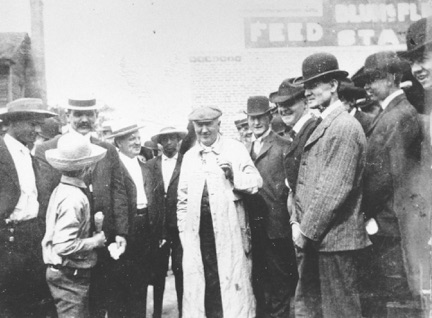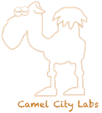

Business




NanoTechnology Center

August 29, 1918 Thomas Edison along with Ford and Firestone (shown above), visited Winston Salem.
Our city of Winston-Salem is called “the city of innovation and the arts.” This comes from its long history of innovative enterprise: Hanes, Endura Mills, Reynolds, Wachovia, Texas Pete, Krispy Kreme, BB&T and more. Wake’s Nanotechnology Center, embraces the innovative spirit of our fore-fathers and the entrepreneurial partnerships with industry that make it possible.

A Quick Guide to Working Together
-
1.Licensing existing IP is negotiated through Wake Innovations (WFI). This office is setup specifically to handle the technical and legal details of granting access to our inventions.
What should I expect? WFU uses pretty standard language and terms in its IP agreements. We look much like any other University. So there will be royalties and diligence, insurance requirements etc. In turn, access to IP and our own diligence is given. But because we are smaller and more personal, there may also be the possibility of working together with more unusual terms and conditions.
-
2.Research with us, for the purposes of IP development or fundamental knowledge supplement, is sponsored by a funder (you) toward a PI (faculty member at WFU) and managed by one of the OSR’s at WFU (there is one on each campus). This office is approached initially by the WFU researcher with whom you choose to work. He/She will have to fill in some forms to get the “ball rolling.”
Who are these OSR people? (Each campus has its own office, this is for Reynolda but your PI will know which is appropriate)
How does this OSR work? What are my rights as a contractor?
What are my expectations from University research? Only that the PI should try his/her best under the financial constraints set and that they keep you informed all the way. Remember that this is research and so its outcomes can not be predicted with 100% accuracy. Moreover, access to IP or “fruits of the funding”, should generally be stated and negotiated up front in the granting document, though typically the University expects that you should want such rights.
-
3.Access to equipment as a user is pretty easy: sign up for an appointment and get “qualified” on the instrument you want, then show up and keep track of your time, and finally pay your bill. If you need help, we will help you. If you need someone to do it for you, we will charge you.
Who do I contact? ( carroldl@wfu.edu )
Where are the microscopes? (the 501 Deacon Blvd facility)
What is the cost? This depends on who you are. The University has bought a certain amount of time for its own faculty to use. So if you are a faculty member most things are under $50/hour (this is your contribution to the total cost). If you are an outside industrial or academic researcher, then our University is not supplementing you and most things cost a little more: just at or under $100/hour. But, you could be collaborating with a WFU researcher. In that case you get to pay what the WFU PI is paying (they sponsor you). And, if you are an undergrad in a WFU entrepreneurship program there is some equipment you have free access to, like the Maker Lab. Again, this is courtesy of WFU.

The Nanotechnology Center 2019